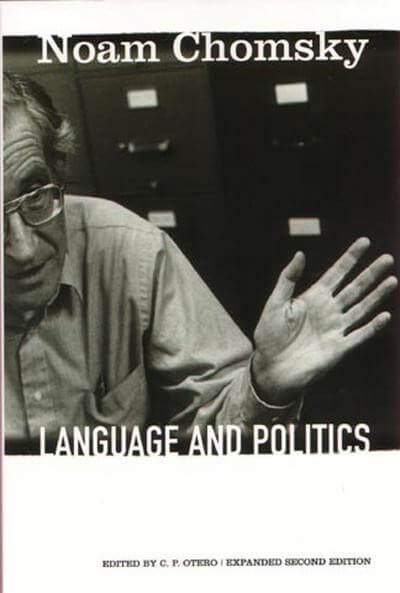Recently, Noam Chomsky turned 90, and Current Affairs reminded us of this wonderful section from an interview from 1984, on propaganda and indoctrination:
To use the term “double standard” for our approach is to really abuse the term; it goes beyond anything that you could call a double standard. It’s almost a kind of fanaticism. It’s a reflection of the extreme success of indoctrination in American society. You don’t have any other society where the educated classes, at least, are so effectively indoctrinated and controlled by a propaganda system.
Let’s talk about that propaganda system. You’ve referred many times to the “state propaganda apparatus.” What role do the media play in promoting and serving state interests?
One should be clear that in referring to the “state propaganda apparatus” here I do not mean that it comes from the state. Our system differs strikingly from, say, the Soviet Union, where the propaganda system literally is directed and controlled by the state. We’re not a society which has a Ministry of Truth which produces doctrine which everyone then must obey at a severe cost if you don’t. Our system works much differently and much more effectively. It’s a privatized system of propaganda, including the media, the journals of opinion and in general including the broad participation of the articulate intelligentsia, the educated part of the population. The more articulate elements of those groups, the ones who have access to the media, including intellectual journals, and who essentially control the educational apparatus, they should properly be referred to as a class of “commissars.” That’s their essential function: to design, propagate and create a system of doctrines and beliefs which will undermine independent thought and prevent understanding and analysis of institutional structures and their functions. That’s their essential social role.
I don’t mean to say they’re conscious of it. In fact, they’re not. In a really effective system of indoctrination the commissars are quite unaware of it and believe that they themselves are independent, critical minds. If you investigate the actual productions of the media, the journals of opinion, etc., you find exactly that: a very narrow, very tightly constrained and grotesquely inaccurate account of the world in which we live.
This is quite relevant in Economics, where monetary theorists play the role of “commissars”. The part on being conscious of it is debatable, but I will leave that for another time!
Happy birthday, Noam Chomsky!
